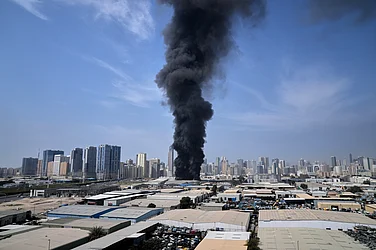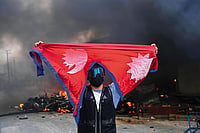In a chilling resurgence of activity, the Islamic State (IS) has claimed responsibility for a brazen ambush in eastern Syria that resulted in the tragic loss of at least 20 government soldiers, while warning of an unyielding onslaught of such attacks. Despite their apparent defeat in Syria in 2019, ISIS sleeper cells have shown their capacity to unleash deadly strikes, maintaining an unsettling presence.
This menacing group, once a dominant force that held sway over substantial regions of Syria and Iraq, proclaiming a self-styled caliphate in 2014, has managed to evade oblivion. In a statement issued on Friday night, ISIS detailed how its fighters tactically ambushed two military trucks in Deir el-Zour province, employing an array of weaponry. The terrorist organization asserted a higher toll, claiming 40 Syrian military personnel were killed and 10 left wounded, as reported by AP.
Syrian opposition activists documented a separate Thursday night assault on a soldiers' bus near Mayadeen, confirming the loss of over 20 soldiers and inflicting further injuries. The state media acknowledged the attack's grim consequences but withheld specific numbers.
In a defiant proclamation, ISIS declared, 'Our commitment to our leadership finds expression through our actions, not mere words. Our unrelenting Jihad endures until the end of days.'
Recent weeks have witnessed ISIS confirming the demise of their little-known leader in Syria, Abu al-Hussein al-Husseini al-Qurayshi, who had guided the extremist faction since November. This marked the fourth leadership change since the killing of the organization's founder, Abu Bakr al-Baghdadi, in 2019 by U.S. forces in northwestern Syria.


.jpg?w=801&auto=format%2Ccompress&fit=max&format=webp&dpr=1.0)


















